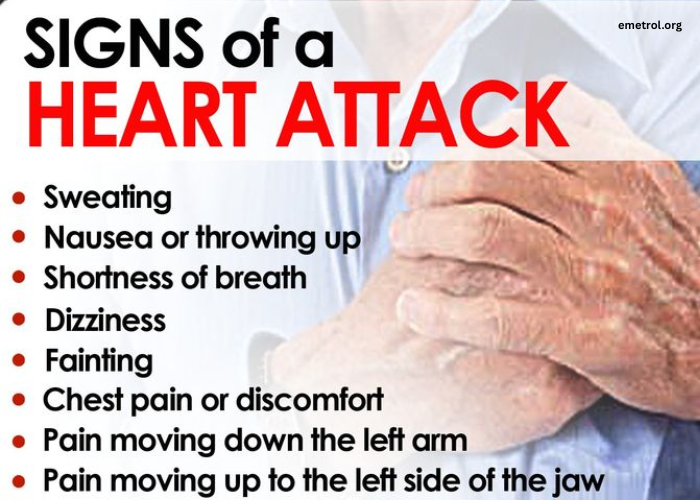Carnivore Diet Before and After: The Real Transformations and Results Explanation
Carnivore diet is a special diet plan in which individuals consume only foods of animal origin such as meat, fish and eggs. There is no processed food, vegetables, fruits, or grains. Others begin this diet to lose weight, obtain energy, or address health concerns like bloating, skin or joint pain. The results of this diet that come out after and before can be surprising and sometimes very positive yet it is not everyone.
The first question, which arises in the minds of people when they hear about this diet, is normally: How can you be healthy without fruits and vegetables? This guide will tell how it works, what actual people have felt before and after initiating the diet, and what you may experience in case you decide to give it a go.
Main Notes following Introduction:
- Carnivore diet eliminates all vegetable foods.
- A lot of users testify to improved digestion and energy.
- The outcomes depend on your body, health and dedication.
What Will Change After And Before The Carnivore Diet?
Carnivore diet may result in physical and mental alterations. The majority of individuals start this diet with the aim of solving health issues or to drop weight. So what will occur before and after the change of diet to this one?
Before Starting:
Prior to carnivore diet, most of the individuals experience bloating, gas, acne, mood swings, and lack of energy. Others even possess autoimmune disorders or inflammation of unknown origin. These problems are usually aggravated by diets that contain carbs, sugars and processed foods. In addition, a lot of individuals are addicted to junk food and they always want to have snacks.
After Switching:
Many people who have tried the carnivore diet after a few weeks say that they feel more clear-minded, have consistent energy, and less inflammation. Loss of weight is frequent, mostly during the initial weeks. Digestive problems such as bloating and gas tend to disappear. Skin is healed and individuals with autoimmune disorders report feeling good without drugs.
Comparison Table Before and After: Post-Carnivore Diet
| Changes | Before Carnivore Diet | After Carnivore Diet |
|---|---|---|
| Digestion | Bloating, gas, irregular stools | Normal digestion, no bloating |
| Energy Levels | Lack of energy, energy crashes | Constant energy throughout the day |
| Weight | Increase in weight, difficult to lose | Observable fat loss, slimmer body |
| Skin Condition | Acne, redness, dry skin | Clearer, healthier skin |
| Mood & Mental Focus | Mood swings, brain fog | Stable mood, better concentration |
| Cravings | Sugar & carb cravings | Less cravings, especially sugar |
Note: Individual results are possible. You should pay attention to your body and seek professional help where necessary.
How much weight can be lost with a carnivore diet?
One of the largest motivations of people to go on the carnivore diet is weight loss. Although the bodies of different people respond differently, majority of people lose a lot of weight in the first 1 to 3 months. This is normally caused by the reduced levels of insulin, inflammation, and the number of calories consumed naturally.
Example:
On the carnivore diet, a 35-year-old man lost 25 pounds in 3 months. He did not count calories, he simply ate meat when he was hungry. His stomach became slimmer and his face thinner. He added that he no longer had cravings of sugar, and this made him to adhere to the plan more easily.
Comparison Chart of Weight Loss (3 months)
| Initial Weight | Final Weight | Weight Lost | Apparent Differences |
|---|---|---|---|
| 200 pounds | 175 pounds | 25 pounds | Thinner waist, less puffiness in the face |
| 180 lbs | 160 lbs | 20 lbs | Improved muscle tone, less bloating |
| 150 lbs | 138 lbs | 12 lbs | Clear jawline, increased energy |
Note: You should constantly monitor your weight, measurements, and photos to understand better how you are progressing.
Is The Carnivore Diet Safe Long-term?
This is a very usual worry. We are told after all, that vegetables and fruits are healthy. Therefore, can we live safely without them?
The brief response: It may be safe to a lot of individuals but this is dependent on your health and the way you embrace the diet.
Pros:
- The long-term carnivore diet followers have provided numerous testimonies of good blood results, healthy cholesterol, and consistent weight.
- They have less colds, sleep better and have sharper minds.
Cons:
- There are individuals who can be deficient in vitamins such as vitamin C or fiber in the long run.
- Others may experience social pressure, or they will miss favorite foods.
- To obtain sufficient nutrients it is necessary to consume various parts of the animal such as liver and organ meats.
Example:
One of the most famous carnivores is Amber OHearn who has been following this diet more than 10 years. She states that it has healed her of bipolar disorder and keeps her able bodied and focused.
What Can You Eat And Not Eat On Carnivore Diet?
The most important thing in this diet is to know what to eat and what not to eat. It is quite simple yet strict.
Eating Foods:
- Steak, ground beef (beef)
- Lamb, pork, chicken
- Salmon, sardines (fish)
- Eggs
- Butter and tallow (animal fats)
- Organ meat (liver, heart)
Foods to Avoid:
- Vegetables and fruits
- Grains (pasta, rice, bread)
- Soft drinks and snacks
- Dairy (some of the more strict followers avoid it)
- Fast food (chips)
Sample Menu:
| Time | Meal |
|---|---|
| Breakfast | 3 scrambled eggs and steak |
| Lunch | Grilled thighs and bone broth of chicken |
| Dinner | Ribeye steak and melted beef tallow |
| Snack | Boiled eggs or beef jerky (optional) |
This straightforward way of eating will assist in eliminating food stress and guesswork out of your life.
What Are The General Problems And How To Deal With Them?
As much as the diet is very beneficial, it also has a few initial challenges. They tend to occur in the initial 2–4 weeks as your body adapts to using fat, rather than carbs as an energy source.
Common Challenges:
- Keto flu (headache, tiredness, dizziness)
- Sugar withdrawal
- Food fatigue
- Peer pressure to eat
How To Fix Them:
- Consume more water and salt (electrolytes are useful)
- Sleep and do not engage in hard work out in the first week
- Experiment with cuts of meat
- When you are out to eat, explain your diet.
Example:
The first week was a challenge to Lisa, a busy mother, because of sugar cravings. However, after two weeks she lost her cravings and enjoyed the convenience of not having to make elaborate meals.
Takeaway: Is The Carnivore Diet Worth Trying?
The carnivore diet has impressive before and after outcomes on many individuals. The effects which include weight loss and skin clearing, energy and clarity of mind can be life-changing. Nevertheless, it is not a magic diet that fits all, just as any other diet.
Whether you have chronic health issues or are sick of dieting in circles or simply want to feel better, the diet might be worth trying out 30 to 60 days. Never ignore your body and check with your physician, particularly with medical conditions.
Reminder: Go at a slow pace and pay attention to your body. Outcomes are a long time coming, and they are usually worth the effort.
FAQ’s
1. Is Dairy Allowed On Carnivore Diet?
Yes, but this is relative to what you want to achieve. There are those who can have cheese and butter but some cannot have dairy products because they cause bloating or inflammation.
2. What is the Duration of Results?
The majority of individuals feel the difference after the first 2 weeks, they feel more energetic, have improved digestion, and have fewer cravings.
3. Can You Have Coffee On Carnivore?
It is not consumed by strict carnivores, although many drink black coffee with moderation without any difficulties.
4. Is it Possible to Work Out during this Diet?
Yes. As a matter of fact, most individuals claim to have increased strength and endurance. The first week is not good to have intense work out.
5. Can The Carnivore Diet Be used by All People?
Not always. It might not be suitable to individuals with kidney problems or some deficiencies in nutrients. Never begin without talking to a doctor.



